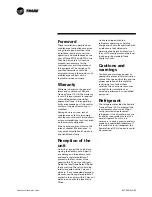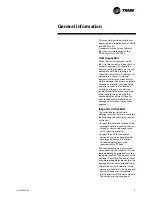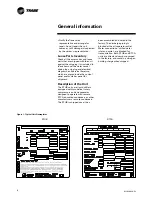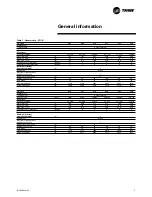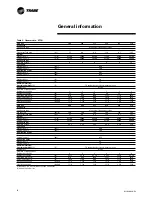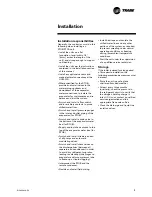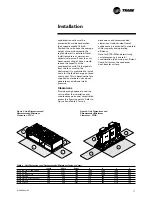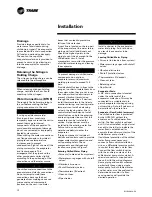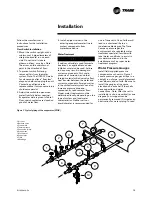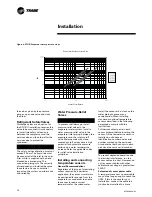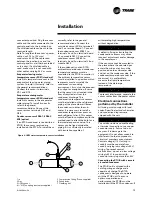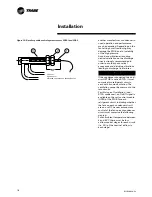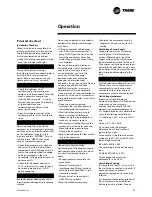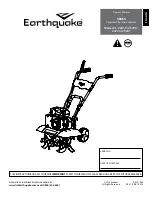
RLC-SVX03A-E4
9
Installation responsibilities
Generally, the contractor must do the
following when installing an
RTUB/RTCA unit.
• Install the units on a flat
foundation, level (within 1/4"
[6 mm] across the length of the
unit), and strong enough to support
unit loading.
• Install the units per the instructions
contained in the Installation section
of this manual.
• Install any optional sensors and
make electrical connections at the
UCM-CLD.
• Where specified for the RTUB,
provide and install valves in the
water piping upstream and
downstream of the evaporator
water connections, to isolate the
evaporator for maintenance and to
balance and trim the system.
• Furnish and install a flow switch
and/or auxiliary contacts to prove
chilled-water flow.
• Furnish and install pressure gauges
in the inlet and outlet piping of the
evaporator (for RTUB).
• Furnish and install a drain valve to
the bottom of the evaporator water
box (for RTUB).
• Supply and install a vent cock to the
top of the evaporator water box (for
RTUB).
• Furnish and install strainers ahead
of all pumps and automatic
modulating valves.
• Furnish and install check valves on
the discharge lines (between oil
separators and condenser) in order
to avoid any refrigerant migration
leading to catastrophic damages to
evaporator and/or compressor (due
to freeze-up or liquid slugging).
• Interconnect the RTUB and the
remote condenser.
• Provide and install field wiring.
• Install heat tape and insulate the
chilled-water lines and any other
portions of the system, as required,
to prevent sweating under normal
operating conditions or freezing
during low-ambient temperature
conditions.
• Start the unit under the supervision
of a qualified service technician.
Storage
If the chiller is stored for a long period
of time prior to installation, the
following precautionary measures must
be taken:
• Store the unit in a safe place
sheltered from bad weather
• At least every three months
(quarterly), check the pressure in
the refrigerant circuits to verify that
the nitrogen holding charge is
intact. If it is not, contact a qualified
service organization and the
appropriate Trane sales office.
• Close the discharge and liquid-line
isolation valves.
Installation


